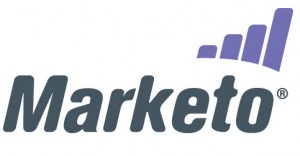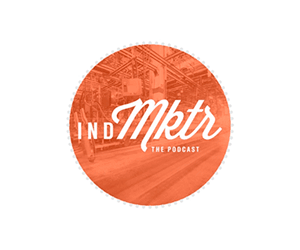Editor’s Note: It was brought to our attention that the original version of this post contained inaccuracies about certain platforms. Those inaccuracies have been corrected and discussed with platform representatives. The article now contains the most updated information provided to the writer.
Marketing automation is a category of software that streamlines, automates, and measures marketing tasks and workflows to increase efficiencies and grow revenue. Imagine this scenario: A new visitor comes to your website because they see an ad promoting your latest industry white paper. They provide their name and email address to download the white paper and immediately are sent a “thank you” email with a link to download the paper. Then, three days later, they receive an email asking if they enjoyed the white paper and offering more services or downloads for free. While revisiting your site to browse those offerings, they go to a page. Twenty-four hours later, they’re sent another email asking them about that specific page and the services mentioned on it. Meanwhile, they are routed as a lead to the correct sales rep and all customer activity is tracked, rated, and stored so you can calculate ROI. The kicker? All of this happens automatically, without your direct involvement. That’s the power of marketing automation. If this scenario seems vaguely familiar, that’s because we’ve talked about the importance and emergence of marketing automation before. In the online world, potential customers can change their minds almost at the speed of light, so it is vital that you have a system that captures, assesses, and communicates with interested parties before they forget they were on your website at all. Since most of the marketing automation world is controlled by a few major players, let’s do a side-by-side comparison and highlight some of the factors that can help you decide which service is right for your company.
Leading Marketing Automation Platforms
Eloqua
Eloqua is one of the oldest marketing automation platforms, dating back to 1999. They have about 400 employees and currently serve over 100,000 users worldwide. At the end of 2012, they were acquired by Oracle. Like its competitors, Eloqua offers pretty much everything you need from a marketing automation platform. Some of the highlights include a robust email marketing program, landing page creation, CRM integration, and lead nurturing/scoring. One of Eloqua’s strongest features is its “Co-Dynamic Lead Scoring” technology. It incorporates common lead quality parameters like budget, authority, need, and timeline, as well as key qualifiers such as lead response, activity, and behavior. Eloqua offers more in the way of social media management than some of the others with their “Social Suite,” which has applications in three categories:
- Social apps that allow drag-and-drop scheduling features
- Social data apps that pull in data from the leading social sites
- Social reporting and conversion measuring
Like other marketing automation platforms, Eloqua includes reporting so you can see how your particular actions affect your marketing efforts. Their customizable dashboards offer a variety of insights that can help you make informed decisions about what is and isn’t working.
Eloqua Pros
- One of the most established marketing automation platforms
- Email program is user-friendly
- Co-Dynamic Lead Scoring technology is intuitive and helpful
- Offers status tracking for team members so that all approvers get a chance to see and approve campaigns before launch
Eloqua Cons
- High price
- Setup time can drag on if not carefully monitored
- Doesn’t offer Google AdWords integration for keyword performance or ROI
- Emails are not included in closed-loop reporting efforts
HubSpot
HubSpot is one of the biggest names in marketing automation and inbound marketing. Founded in 2006, they have over 10,000 clients. They are one of the largest platforms available with over 700 employees who handle everything from account management to development to IT and customer service. It’s hard to research marketing automation platforms and not run in to HubSpot. They cover pretty much all the requirements of a marketing automation platform, including an internal CMS, keyword tracking, in-page SEO guidance, email creation, workflows, reporting, and landing page creation. HubSpot makes it easy for you to create call-to-action (CTA) buttons and landing pages for your conversion funnel. You can create landing pages and CTA buttons individually, allowing you to implement the CTA buttons in any medium desired. A good marketing automation platform will track and score leads based on their actions in your marketing funnel. HubSpot includes lead tracking and scoring but their system scores leads automatically based on the actions leads take on site unless you pay for a premium version. Outbound communications are imperative for quality marketing automation software. HubSpot includes tools for email creation, list segmentation, and nurturing, as well as design templates for those who do not know HTML.
HubSpot Pros
- Integrates well with Google Analytics (and others)
- Includes email marketing services
- Offers a plethora of “top of funnel” resources
- Workflow and lead scoring systems are easy to manage
HubSpot Cons
- On the more expensive end of the spectrum (especially if you want all necessary functions)
- Their standalone CRM is fairly low quality
- Lead scoring is not customizable unless you pay extra
- A dedicated technical point of contact is an additional cost
 LeadFormix
LeadFormix
LeadFormix is a relative “underdog” in the marketing automation game, but they are backed by CallidusCloud and have a very detail-oriented system. Founded in 2008, their customer base has grown quickly as they have emphasized lead nurturing and customer service. LeadFormix may not be as widely known as HubSpot, but their services are an equal match to the marketing giant’s. LeadFormix offers email marketing, lead nurturing/scoring, social media management, workflow creation, keywords tracking, and on-site SEO guidance for a much lower price than competitors. In the realm of email marketing, LeadFormix not only offers list management and segmentation, but includes both HTML and drag-and-drop email creation. Most of LeadFormix’s marketing components are built individually, allowing you to mix and match tactics to a lead’s level in the sales funnel. When it comes to lead nurturing/scoring, LeadFormix gives all the control to the user. Unlike HubSpot, all LeadFormix’s scoring is customizable so you can fit it to the needs of your company. Also, automatic communications (as well as a number of other actions) can be set up to trigger once leads pass a certain score threshold. Some of the customizable lead scoring criteria available include:
- Entry page(s)
- Resource downloads
- Time spent on site
- Number of pages visited
- Emails opened
While LeadFormix’s reporting dashboard could use some improvements, all the important information is accounted for. You and your team may need to take some time to reformat the numbers and graphs to be more user friendly, but LeadFormix allows you to easily see the effects your efforts are having.
LeadFormix Pros
- Less expensive option for those new to marketing automation
- Includes all the bells and whistles of the larger options
- Customer service is top notch
- Email management and lead scoring are very user friendly
LeadFormix Cons
- The look and feel of the platform seem a bit dated
- Reporting styles and data could use some improvements
- Some of the initial setup and tracking codes can be confusing for the uninitiated
- Social management tools are not really up to snuff with other, free options.
Marketo
Marketo was founded in 2006, around the same time as HubSpot, and has over 100,000 users worldwide. The major advantage of Marketo is its ability to sync with CRM platforms. Marketo developers spent a lot of time making sure the platform integrates with Salesforce CRM, as well as NetSuite and SugarCRM. The degree of communication even allows users to apply changes to their CRM from within the Marketo system. Like other platforms, Marketo scores leads according to a multitude of user-selected criteria, including:
- Demographics
- Product-specific scoring
- Sales rep CRM notes
- White paper downloads
When it comes to email creation and management, Marketo allows users to design emails with a drag-and-drop feature—no HTML knowledge required. The emails can then be sent immediately or triggered based on customer actions, timing, or as a part of a larger workflow. Email performance is also calculated and reported. Marketo offers many choices for reporting, including landing page and email performance, website performance (through a Google Analytics connection), lead activity, and campaign performance. The system delivers deep insights into what’s working and what isn’t. Their customizable analytics can also be empowering for more technologically advanced users.
Marketo Pros
- Lots of lead scoring options
- Landing page creation is fluid and user-friendly
- CRM integration
- Detailed reporting
Marketo Cons
- One of the most expensive options
- Could be too Salesforce centric
- Some of the integrations are complicated
- Low customer service rating
Deciding on a Marketing Automation Platform
Now that all the major marketing automation platforms have been reviewed, selecting which one is right for your particular company is up to you. It will take time and good internal communication to decide which one fits your company’s needs. The most important thing to keep in mind is that a tool will never make the difference between the success and failure of your marketing efforts. The determining factors will be the organization and dedication your company applies to whichever tool is chosen. The decision becomes much easier once you decide what your “must-haves” are. The marketing automation revolution is coming and you need to be ready. Whichever tool you choose, your success or failure will be determined by the strategy behind your actions and the time you spend making sure each channel of your integrated marketing funnel works in sync with all the others. If you have any questions about what your strategy should be, or how you can be sure that you have all channels accounted for, please contact us and we’ll be happy to explore those questions with you.




